Understanding your audience is the cornerstone of any successful SEO strategy. Without knowing what your target audience is searching for and how they search, it’s impossible to create content that meets their needs. But how do you conduct effective audience research for SEO? Let’s dive into traditional methods, their limitations, and a better approach to uncover search behavior insights.
Traditional Audience Research: Methods and Limitations
Methods of Traditional Audience Research
- Surveys and Questionnaires: Collecting data through direct questions about preferences, challenges, and habits.
- Focus Groups: Gathering small groups of people to discuss their opinions and behaviors.
- Demographic Analysis: Using tools like census data, market reports, or audience insights on platforms to understand age, gender, income, and other basic details.
- Customer Interviews: Conducting one-on-one interviews with existing customers to understand their needs and feedback.
Limitations of Traditional Audience Research
While traditional methods provide valuable information, they come with inherent challenges:
- Limited Scope: Surveys and interviews often reflect the opinions of a small group, which may not represent your entire audience.
- Bias in Responses: People may not always answer honestly or may struggle to articulate their needs and desires accurately.
- Static Data: Traditional research captures a snapshot in time, failing to reflect how audience behavior evolves dynamically.
- Search Intent Overlooked: These methods rarely consider how people search online or the nuances of search intent.
A Better Way for Audience Research in Search
To succeed in the digital age, audience research must shift towards understanding search behavior. Search engines have become a primary source for discovering solutions, and tapping into this data reveals insights that traditional methods often miss. Here are some advanced techniques to level up your audience research:
- Keyword Research Tools:
- Tools like Google Keyword Planner, SEMrush, or Ahrefs help you uncover the words and phrases your audience searches for.
- Look for related keywords, search volumes, and keyword difficulty to find terms with a good balance of relevance and competition.
- Search Intent Analysis:
- Categorize queries into informational, navigational, transactional, and commercial investigation.
- Tailor your content to match the intent behind each query.
- Competitor Analysis:
- Study competitors’ content that ranks well in search engines. Use tools to identify keywords driving traffic to their pages.
- Analyze gaps in their content that you can fill with unique insights.
- Audience Behavior on SERPs:
- Use tools like Google Search Console and analytics to understand which queries bring users to your site.
- Track click-through rates (CTR) and engagement metrics to refine your content.
- Social Listening and Forums:
- Monitor social media platforms, forums, and community discussions like Reddit or Quora to identify the language and concerns of your target audience.
How to Research Audience Search Behavior
To get the most out of audience research for SEO, follow these steps:
Step 1: Define Your Target Audience
- Create buyer personas by combining demographic data, psychographics, and behavior insights.
- Identify their pain points, goals, and frequently asked questions.
Step 2: Analyze Search Trends
- Use Google Trends to identify seasonal or geographic patterns in searches.
- Look for rising topics and keywords related to your niche.
Step 3: Map Out Customer Journeys
- Identify how users search at each stage of their buying journey—awareness, consideration, decision.
- Match search intent to the content format they prefer (e.g., blog posts, product pages, or videos).
Step 4: Leverage Analytics Tools
- Use Google Analytics to understand the behavior of users on your website.
- Identify high-performing pages and queries with high impressions but low CTR to optimize.
Step 5: Experiment and Iterate
- Conduct A/B testing on headlines, meta descriptions, and content formats.
- Regularly revisit your keyword and audience data to adjust your strategy as behavior evolves.
Wrapping Up
Effective audience research for SEO goes beyond traditional methods. By embracing tools and techniques that analyze search behavior, you can create content that resonates with your audience and drives measurable results. Stay flexible and iterative in your approach, and you’ll stay ahead in the ever-changing landscape of search engine optimization.
Ready to transform your SEO strategy? Start with audience research and build from there—because understanding your audience is the key to unlocking search success.


